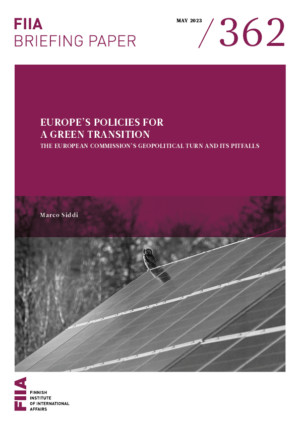The European Commission has published numerous policy documents concerning the European Green Deal and the energy transition since 2019. Several have an important foreign policy component.
Following the Covid-19 crisis and especially Russia’s attack on Ukraine in February 2022, the discourse and policy objectives of these documents have taken a ‘geopolitical turn’, meaning that the EU’s security, interests and cooperation with Western allies have become more prominent than before.
The REPowerEU plan, the new External Energy Strategy and the Green Deal Industrial Plan exemplify this shift by combining green and geopolitical objectives.
The EU’s geopolitical turn in external energy politics involves several risks. Third countries could perceive some policies as ‘green protectionism’ or ‘green colonialism’.
Domestically, some business actors dislike restrictions on imports of critical raw materials and green technology from abroad, whereas additional mining in the EU may not be compatible with biodiversity and environmental protection. At the same time, ‘offshoring’ mining outside the EU may transfer the ecological consequences to contexts with laxer regulation.


